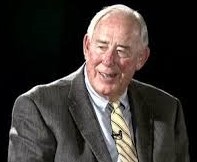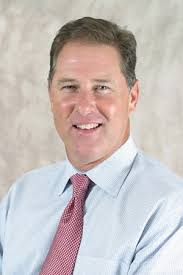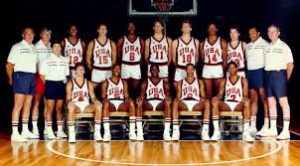The NBA Finals date back to 1947 (when they were known as the Basketball Association of America Finals) and the very 1st NCAA tourney was held in 1939. Olympic basketball competition is even older: it debuted as a demonstration event in 1904 and the men’s version became a medal sport in 1936, with the women finally getting their chance to go for the gold in 1976. The United States has dominated Olympic basketball competition from the start: the men have won 15 gold medals in the 18 tournaments they have participated in during the past 84 years, while the women have won 8 gold medals in the 10 tournaments in which they have competed during the past 44 years. Those of you who were looking forward to the 2020 Olympics opening ceremonies in Tokyo on July 24, 2020 will have to wait an extra 364 days, as the coronavirus caused a postponement until July 23, 2021. Due to the absence of college basketball since mid-March, HoopsHD’s Jon Teitel decided to fill the void by trying to interview as many prior Olympic players/coaches as possible so that you have something to read this summer while not watching the Summer Games. We continue our coverage by chatting with Samford athletic director Martin Newton about his Hall of Fame father CM winning an NCAA title in 1951 and a gold medal in 1984. Today marks the 36th anniversary of team USA beating Spain 96-65 in the gold medal game.
Your father was born in Tennessee and raised in Florida: what made him choose Kentucky? He was all-state in baseball/basketball/football and had an opportunity to play for the premier program in the country. Kentucky also gave him a chance to play baseball as well as basketball.
In the 1951 NCAA title game as a player for Hall of Fame coach Adolph Rupp he had a 10-PT win over Kansas State: how did he like playing for Rupp, and what did it mean to him to win a title? He learned so much from Coach Rupp, as well as from football coach Bear Bryant, who are 2 of the greatest coaches ever. Coach Rupp was very fair but very tough. Winning a title with his close friends was 1 of the greatest highlights of his life.
He became a lieutenant in the Air Force after graduating: what impact did his service have on him either as a father or as a coach? His older brother was a West Point grad: I believe that uncle Newt retired as a colonel and his son retired as a general. He idolized Newt so serving his country was something that was important to him. He also coached in the military. There was an “SEC Storied” show about my dad and they had his brother narrate it, which was very cool.
He recruited Wendell Hudson to be Alabama’s 1st African-American scholarship athlete in any sport, was the 1st coach in SEC history to start 5 African-American players, and is credited with hiring the 1st African-American men’s and women’s basketball coaches at his alma mater: how big a deal were these decisions at the time, and how did he deal with the negative public reaction (such as the Klan burning a cross in his front yard)? He never really addressed it as an issue of people of color: he just looked at their character. There was no preconceived notion about being the 1st to do anything: he just wanted to win and all 5 members of that starting 5 were from the state of Alabama. It was very significant during the 1970s but he just saw people rather than color.
He served as an assistant to Bobby Knight for team USA at the 1984 Olympics: how did he like working for Knight, and what did it mean to him to win a gold medal? He was a little bit like Forrest Gump: he was always at the right place at the right time. He was the yin to Knight’s yang so they balanced each other out very well. The experience of picking a team rather than just a group of superstars was important: he really enjoyed coaching guys like Michael Jordan before they became superstars.
He went 4-20 during his 1st year at Alabama in 1969 but was a 6-time SEC COY from 1972-1989 and won more than 500 games as a college basketball coach before retiring in 1989: what made him such a great coach? When he took the job at Alabama he actually took a pay cut after leaving his prior job at Transylvania. It was a football school in a football state (unlike Kentucky) but he always saw beyond the short-term and envisioned what the program could be. He signed so many great local players and the state really took pride in its home-grown talent. He built it for the long-term, then went to Vanderbilt and took advantage of the 3-PT shot once it was instituted: he was very visionary.
After getting out of coaching he spent more than 2 decades in various administrative roles including chairman of the NCAA Rules Committee: why did he decide to have the NCAA adopt the shot clock/3-PT line? He had a great ability to listen to people/ask questions/gather information. He had a passion for protecting the game while also trying to make it better. He saw how the international game had grown with 4s and 5s who could shoot from long-range so he knew that we needed to adapt. TV was starting to become a major player and watching teams stall the basketball did not make for great ratings.
As president of USA Basketball he oversaw the reformation of the Olympic basketball team from college players to pro players: did you like the idea at the time, and do you think that we will ever change back to using amateur players? I do not think that we will ever go back. He was always looking forward: other Olympic teams in the US were using pro players so it was men against boys. When he came back from some of the 1st Dream Team tryouts he mentioned how unbelievably blown-away he was by the pick-up games: it was something that he had never experienced in his life. We had so much pride/fun.
He was inducted into the Naismith Basketball Hall of Fame as a contributor in 2000 and the College Basketball Hall of Fame in 2006: where do these rank among the highlights of his career? The Naismith Hall of Fame was the highlight, without a doubt. When he passed away I learned that he had made a donation to the Hall: he loved having an impact on the game.
He passed away in 2018: when people look back on his career, how do you think that he should be remembered the most? First and foremost as someone who truly loved the game and the people within the game. He was a people person who built relationships: I am 59 and have yet to meet anyone who said anything negative about him. It was never about self-promotion: it was about promoting the game.





